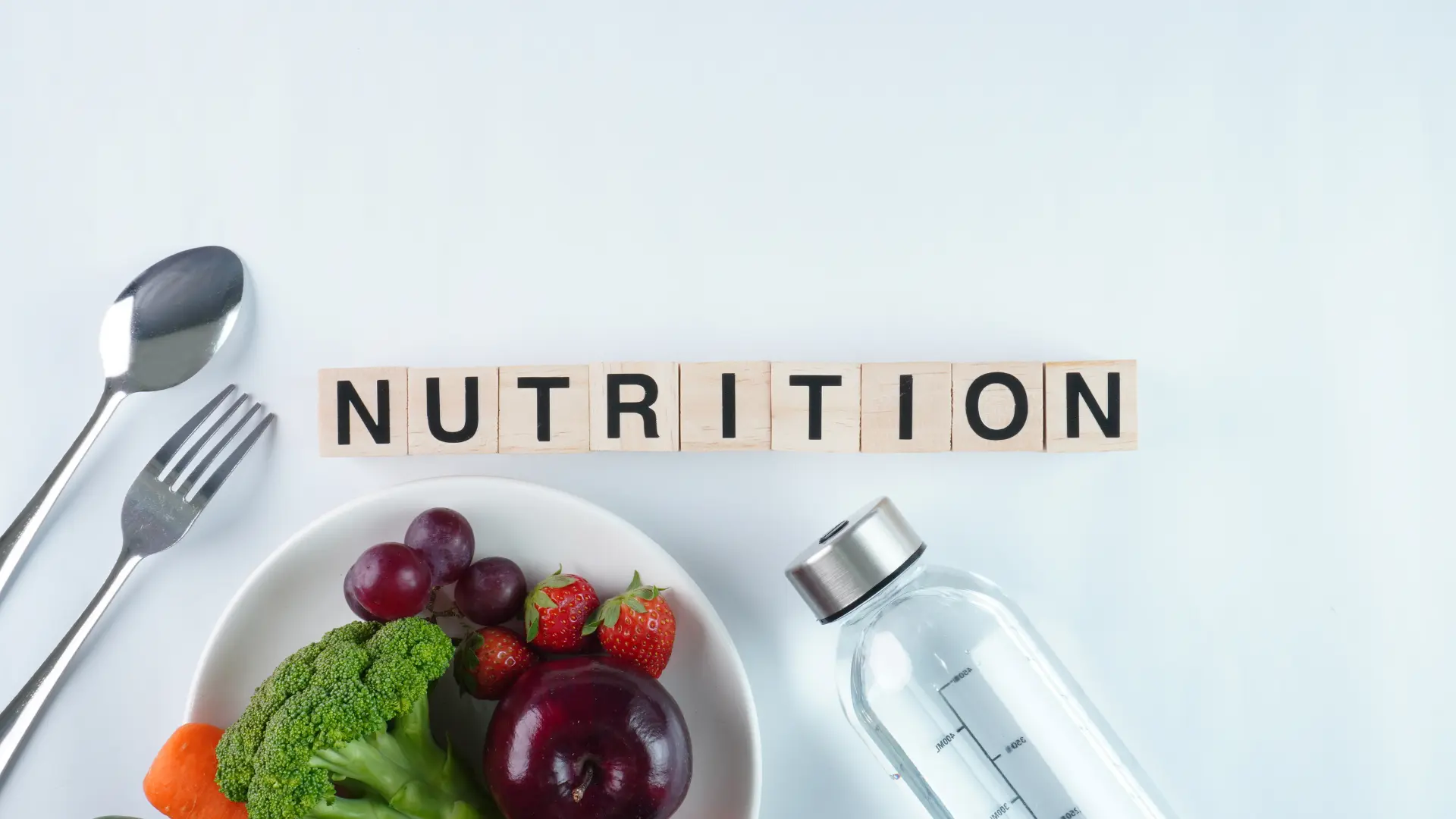The arrival of your precious baby marks the beginning of an incredible new chapter. Understandably, in those first few weeks and months, your world revolves around this tiny new human – their feeds, their sleep, their every little need. But amidst the whirlwind of new parenthood, it’s absolutely crucial, dear mothers, not to forget about your own needs. The postpartum period, sometimes called the ‘fourth trimester’, is a time of significant physical healing and emotional adjustment for you.
My name is Dr. Vrushali Pillai, and as a Senior Consultant Obstetrician & Gynaecologist at Borneo Hospital, Thane – part of the Borneo group with branches in Nashik, Chhatrapati Sambhaji Nagar, and Raipur City – I believe deeply in laying a strong foundation for health before pregnancy begins. A mother who is well-nourished, rested, and supported is better able to navigate the demands of caring for her newborn and truly enjoy this special time.
This article focuses on two often-overlooked but essential aspects of this period: Nutrition and Self-Care After Childbirth. We’ll explore why these matter so much and offer practical tips to help you prioritise your recovery and well-being during this demanding yet rewarding phase. Please remember, whilst this provides general guidance, personalised advice from your doctor or healthcare provider is always recommended.
Why Postpartum Nutrition & Self-Care are So Vital
It might feel selfish to focus on yourself when you have a newborn, but prioritising your health is actually one of the best things you can do for your baby. Here’s why:
- Fueling Physical Recovery: Childbirth, whether vaginal or via Caesarean section, is a major physical event. Your body needs the right fuel (nutrients) and adequate rest to heal tissues effectively, recover from blood loss, repair muscles, and regain strength.
- Meeting High Energy Demands: Caring for a baby 24/7 is physically demanding! Lifting, carrying, walking, soothing, functioning on fragmented sleep – all require significant energy. Good nutrition provides the stamina you need.
- Supporting Milk Production: If you are breastfeeding, your body works incredibly hard to produce nutritious milk for your baby. This increases your requirements for calories, protein, vitamins, minerals, and especially fluids. Adequate Nutrition and Self-Care After Childbirth directly supports successful lactation.
- Boosting Emotional Well-being: Exhaustion and poor nutrition can significantly impact your mood, making you more susceptible to stress, irritability, and even increasing the risk or severity of postpartum ‘baby blues’ or Postpartum Depression. Taking care of your basic needs helps regulate mood and improves your ability to cope.
- Foundation for Long-Term Health: The habits you establish during this recovery period can influence your health in the longer term.

Postpartum Nutrition Essentials: Eating for Recovery & Energy
Focus on eating wholesome foods that help you heal, give you energy, and replenish nutrient stores.
1. Key Nutrient Focus:
- Protein Power: Crucial for repairing tissues damaged during birth and essential if breastfeeding. Include good sources in your meals like dals (lentils), chana (chickpeas), rajma (kidney beans), eggs, lean chicken, fish, paneer, tofu, nuts, and seeds. A variety of sources is best.
- Iron Replenishment: Childbirth involves blood loss, making iron replenishment vital, especially as anaemia is common among women in India. Iron helps combat fatigue and supports overall recovery. Good sources include lean red meat, poultry, fish, lentils, spinach, methi (fenugreek leaves), jaggery (gur, use moderately), dates, and iron-fortified grains. It’s very important to continue taking your prescribed iron supplements after delivery, usually for at least 3 months, as advised by your doctor. Remember to pair iron-rich foods with Vitamin C sources (like lemon juice on dal, amla, oranges, tomatoes) to enhance absorption.
- Calcium & Vitamin D: Essential for your bone health, particularly if breastfeeding, as calcium is drawn for milk production. Include dairy (milk, curd/yoghurt, paneer), ragi, sesame seeds (til), almonds, and green leafy vegetables. Vitamin D (needed to absorb calcium) can be obtained from sunlight exposure (safely, in moderation) and fortified foods, but supplementation is often necessary in India – follow your doctor’s recommendation.
- Omega-3 Fatty Acids (DHA): Found in fatty fish (salmon, sardines – choose low-mercury types), walnuts, flaxseeds (alsi), and chia seeds. These healthy fats support your baby’s brain development via breast milk and may also benefit your mood.
- Fibre Friends: Postpartum constipation is common. Combat it with plenty of fibre from whole grains (whole wheat roti, brown rice, oats, millets), fruits, vegetables, and legumes.
- Vitamins & Minerals: Eat a rainbow! Aim for a wide variety of colourful fruits and vegetables daily to ensure you get a broad spectrum of essential vitamins (like Vitamin C for wound healing, B vitamins for energy) and minerals. Continue your prenatal vitamin for some time postpartum, as usually advised by your doctor.
2. Hydration Heroes:
- Staying well-hydrated is crucial, especially if breastfeeding. Dehydration can worsen fatigue and impact milk supply. Keep a water bottle nearby always and sip frequently throughout the day. Aim for plenty of plain water, but soups, milk, buttermilk (chaas), nimbu pani, and coconut water also contribute.
3. Calorie Needs:
- You do need some extra calories, particularly when breastfeeding (roughly an additional 300-500 kcal/day), but focus on quality over quantity. Choose nutrient-dense foods rather than empty calories from sugary snacks or fried items. Listen to your hunger signals and consider having healthy snacks between meals.
4. Navigating Indian Postpartum Food Traditions:
- Many Indian cultures have wonderful traditions surrounding food for new mothers, often involving ingredients like ajwain (carom seeds), methi (fenugreek), saunf (fennel), ginger, garlic, turmeric, specific dals, and preparations like panjiri or gondh (edible gum) ladoos. These often aim to promote healing, lactation, and provide warmth/strength. It’s fine to incorporate these traditions, but do so mindfully alongside a balanced diet. Some traditional preparations can be very high in ghee and sugar, so moderation is key. Ensure you are still getting adequate protein, iron, calcium, and plenty of fresh fruits and vegetables. If specific traditional restrictions seem overly limiting (e.g., avoiding certain vegetables), discuss them with your doctor or a nutritionist at Borneo Hospital to ensure you aren’t missing out on vital nutrients.
5. Continuing Cautions:
- Practice safe food handling. Limit caffeine intake if you find it affects you or your baby (if breastfeeding). Complete avoidance of alcohol is recommended whilst breastfeeding.
Essential Postpartum Self-Care Practices: Nurturing the New Mum
Self-care isn’t selfish; it’s necessary for your recovery and well-being.
1. Prioritise REST Above All Else:
- Sleep When Baby Sleeps: Repeat this mantra! Forget the housework, ignore the phone sometimes – when your baby naps, try to lie down and rest, even if you don’t fully sleep. This is the single most important self-care tip for managing Sleep Deprivation.
- Accept ALL Genuine Offers of Help: Let your partner, parents, in-laws, friends, or hired help take over chores, cooking, or holding the baby so you can get precious rest. You need and deserve it. This support is helpful towards easing the burden.
- Limit Visitors: While well-wishers mean well, hosting visitors can be exhausting. Keep visits short initially, or ask a family member to manage guests. Protect your quiet time.
2. Perineal Care (After Vaginal Delivery):
- Keep the area clean using a peri-bottle with lukewarm water to rinse after using the toilet. Pat dry gently (front to back) with a clean, soft towel. Change maternity pads frequently. Sitz baths (soaking in shallow warm water) can soothe discomfort and promote healing. Use ice packs (wrapped) initially for swelling. Take doctor-approved pain relief as needed.
3. Caesarean Section Wound Care:
- Follow the specific instructions given by the Borneo Hospital team for keeping your incision clean and dry. Watch carefully for any signs of infection (increasing redness, swelling, pain, pus, fever) and report them immediately. Avoid heavy lifting for about 6 weeks or until your doctor gives clearance. Use pain medication as prescribed to stay comfortable. Support your incision with a pillow when coughing or laughing.
4. Gentle Movement & Exercise (Requires Doctor’s Okay):
- Don’t rush it! Wait for your 6-week postpartum check-up and get your doctor’s clearance before resuming any formal exercise beyond gentle walking.
- Start slowly with short walks once you feel up to it and have approval.
- Begin gentle pelvic floor exercises (Kegels) as soon as you feel comfortable (ask your doctor). These are vital for recovery and preventing future issues like incontinence.
5. Managing Postpartum Bleeding (Lochia):
- Expect vaginal discharge (lochia) for several weeks. It will start red and heavy, gradually becoming lighter in flow and changing colour to pink, brown, then yellowish-white.
- Contact your doctor immediately if bleeding becomes heavy again (soaking a pad in an hour), you pass large clots, or the discharge has a foul smell.
6. Addressing Common Discomforts:
- Constipation: Drink plenty of fluids, eat high-fibre foods. Ask your doctor about safe stool softeners if needed.
- Haemorrhoids: Sitz baths can help. Avoid straining. Discuss creams with your doctor.
- Breast Care: Wear a supportive bra. Manage engorgement or sore nipples with frequent feeding, proper latch, and advice from lactation support (available at Borneo).
7. Nurturing Your Emotional Well-being:
- Acknowledge the huge emotional shift. Allow yourself to feel whatever you feel without judgment. Be aware of the common ‘baby blues’.
- Talk about your feelings with your partner, family, or friends. Connection helps.
- Recognise the signs of Postpartum Depression (persistent low mood, anxiety, hopelessness, loss of interest – see our specific article) and seek professional help from your doctor without any delay if you have concerns. Getting help is essential.
- Try to carve out tiny moments for yourself each day, even just 5 minutes of quiet breathing, enjoying a cup of tea, or stepping outside briefly.
The Importance of the Postpartum Check-up
Don’t skip this crucial appointment, usually scheduled around 6 weeks after delivery at Borneo Hospital! Your doctor will:
- Check your physical recovery (uterus, wound healing, bleeding).
- Discuss any physical or emotional concerns you have.
- Screen for postpartum depression.
- Discuss family planning and contraception options.
- Give clearance for resuming activities like exercise and intercourse.
- Its a vital check for your health.

How Partners and Family Can Provide Essential Support
Supporting a new mother is a vital role:
- Provide Practical Help: Taking charge of cooking, cleaning, laundry, errands, and caring for older children makes a world of difference.
- Facilitate Rest: Ensure she gets uninterrupted periods to sleep or rest. Take over baby care completely for stretches. Manage visitors.
- Offer Emotional Support: Be patient, listen without judgment, offer encouragement and reassurance. Tell her she’s doing a great job.
- Support Feeding: Bring her water/snacks during feeds, help with burping/nappies, support her choice whether breastfeeding or formula feeding.
- Encourage Self-Care: Gently remind her to eat, drink, rest, and seek help if she seems to be struggling.
The postpartum period is a time of profound adjustment and recovery. Prioritising your Nutrition and Self-Care After Childbirth is not an indulgence; it is fundamental to your healing, your energy levels, your emotional well-being, and your ability to thrive as you embrace the joys and demands of motherhood.
Focus on nourishing your body with healthy foods and ample fluids, prioritise rest above almost everything else, practice gentle self-care for physical healing, be aware of your emotional state, and crucially, accept help whenever it is offered. Remember to attend your postpartum check-up. Taking care of yourself allows you to better care for your precious new baby. The entire team at Borneo Hospital is here to support you through this fourth trimester and beyond.



